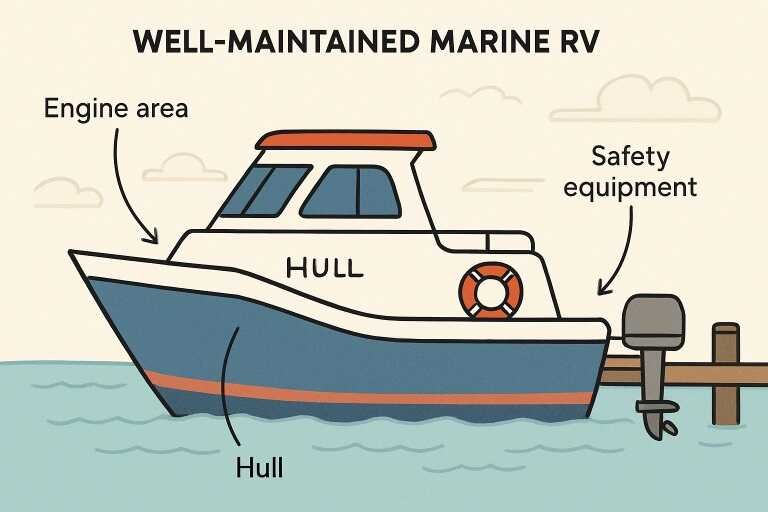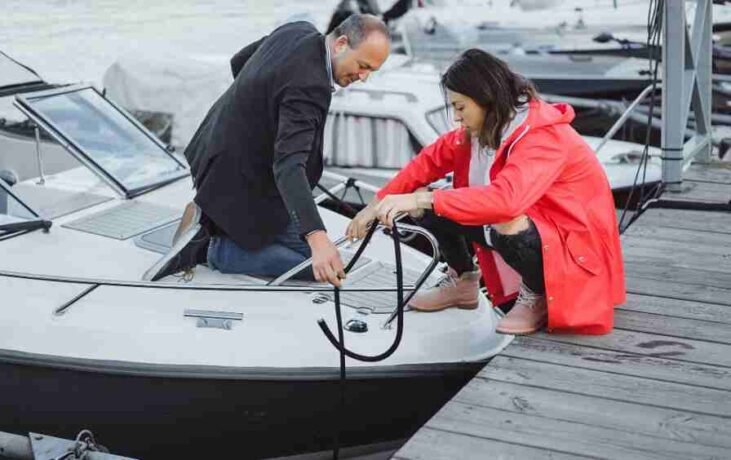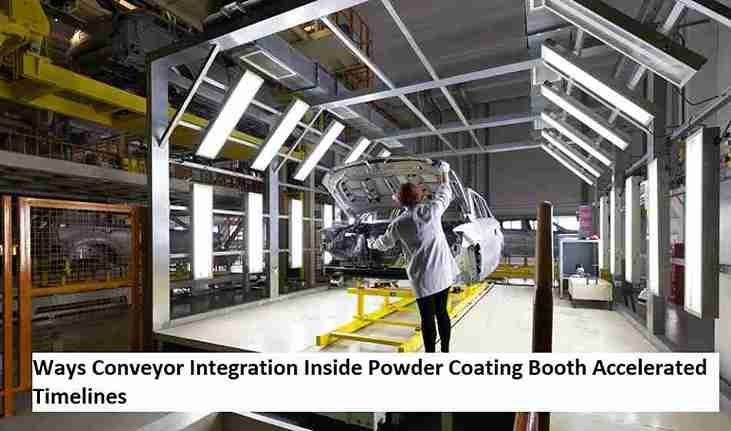
Introduction
Marine RV maintenance plays a crucial role in ensuring your vessel remains safe, dependable, and efficient throughout its lifespan. By committing to regular and thorough upkeep, boaters can prevent unexpected mechanical failures, reduce the risk of costly repairs, and extend the overall durability of their marine RV. This includes everything from routine engine servicing and hull cleaning to electrical system checks and inspection of onboard safety equipment.
A well-maintained marine RV offers not only greater peace of mind on the water but also holds a higher resale value over time. Seasonal and annual maintenance schedules enable you to identify and address minor issues before they escalate, ensuring your vessel remains in peak condition for every adventure. Whether you’re cruising coastal waters or exploring remote marine routes, proper maintenance ensures smooth performance and a more enjoyable boating experience.
Beyond personal benefits, prioritizing marine RV maintenance is also a reflection of responsible boating practices. It contributes to environmental stewardship by preventing oil leaks, fuel spills, and equipment malfunctions that can harm marine ecosystems. In short, consistent maintenance is an investment in your safety, your vessel’s value, and the long-term health of the waters you love to explore.
Regular Engine Maintenance
The engine is the core of your marine RV, and its proper function is vital for reliable operation. Establishing a regular maintenance regimen will prevent major issues and keep your adventures running smoothly. As emphasized in Yachting News, consistent engine upkeep not only enhances performance but also significantly extends engine life and ensures onboard safety. Essential tasks to include are:
- Oil and Filter Changes: Change the engine oil and replace filters according to the manufacturer’s specifications—typically every 50-100 hours of running time or at least once per boating season.
- Cooling System Inspection: Monitor coolant levels and examine hoses for leaks, buildup, or signs of wear. Blockages and leaks in the cooling system are a leading cause of engine overheating.
- Fuel System Maintenance: Regularly change fuel filters and routinely check for water or sediment contamination in the fuel system to prevent performance issues or stalling.
Hull and Deck Care
Your marine RV’s hull and deck are constantly exposed to the elements—sun, salt, and water—all of which can accelerate wear. Committing to proper cleaning and care will not only keep your vessel looking great but also extend its lifespan. Key actions include:
- Regular Cleaning: Wash the exterior surfaces with marine-approved cleaners to eliminate salt deposits, dirt, and algae that can cause corrosion or staining.
- Waxing: Apply a protective marine wax to guard against UV rays and oxidation, helping to preserve the finish and prevent fading.
- Inspection: Routinely check for cracks, chips, blisters, or other surface damage—early repairs can prevent more serious structural problems down the line.
Electrical System Checks
A dependable electrical system is essential for navigation, communication, and onboard comfort. Neglecting electrical care can result in malfunctions or hazardous failures. Prioritize these checks for peace of mind:
- Battery Maintenance: Ensure batteries are fully charged, inspect terminals for corrosion, and clean connections as needed to maintain optimal performance.
- Wiring Inspection: Visually inspect all wiring for wear, exposed areas, corrosion, or loose fittings. Any deterioration should be addressed promptly to prevent shorts or fire risks.
- Lighting: Test all navigation, anchor, and interior lights before departure to confirm safe and legal operation at all hours.
Plumbing and Water Systems
For a comfortable and hygienic boating experience, your plumbing systems need ongoing attention. Key maintenance items include:
- Leak Checks: Frequently inspect hoses, fittings, and connections for leaks, brittleness, or mineral deposits.
- Water Tank Cleaning: Periodically clean and sanitize freshwater tanks according to the manufacturer’s instructions to prevent the growth of bacteria and algae.
- Pump Maintenance: Test water pumps for smooth operation, remove any buildup from strainers, and replace any worn-out filters.
Safety Equipment Inspection
Safety should always be top of mind when maintaining your marine RV. Properly maintained safety gear can be lifesaving in emergencies. Important routines include:
- Life Jackets: Inspect for tears, weakened straps, or missing buckles, and ensure life vests are readily accessible for all passengers onboard.
- Fire Extinguishers: Confirm extinguishers are properly charged, within expiration dates, and stored in easily accessible locations.
- Flares and Signals: Check all signaling equipment for expiration and functionality. Replace expired flares and keep all items within easy reach in the event of an emergency.
Seasonal Maintenance and Winterization
Seasonal transitions, especially when preparing for winter storage, require a targeted approach to safeguard your marine RV from harsh weather and prolonged periods of inactivity. Key practices include:
- Engine Winterization: Flush the engine with clean water, add the appropriate antifreeze, and change the oil to prevent freezing and corrosion during storage months.
- Fuel Stabilization: Add a quality fuel stabilizer to your tank and run the engine briefly to circulate the treated fuel, preventing harmful degradation and gumming.
- Interior Preparation: Deep clean and dry all interiors, remove food items, and consider moisture absorbers to deter mold, mildew, and pests.
Record Keeping and Professional Servicing
Documenting all maintenance work is invaluable for tracking wear and tear, scheduling future tasks, and enhancing the resale value. Keep a detailed log of services, repairs, and part replacements. In addition to DIY inspections, schedule annual comprehensive checkups with certified marine professionals who can identify hidden issues and ensure that every onboard system meets safety and performance standards.
Conclusion
With thorough and consistent marine RV maintenance, you ensure every excursion is as safe and enjoyable as possible. By following the best practices outlined in this guide, you’ll protect your vessel, optimize its performance, and gain peace of mind every time you hit the water. Diligent care today translates to many more years of adventure ahead.


